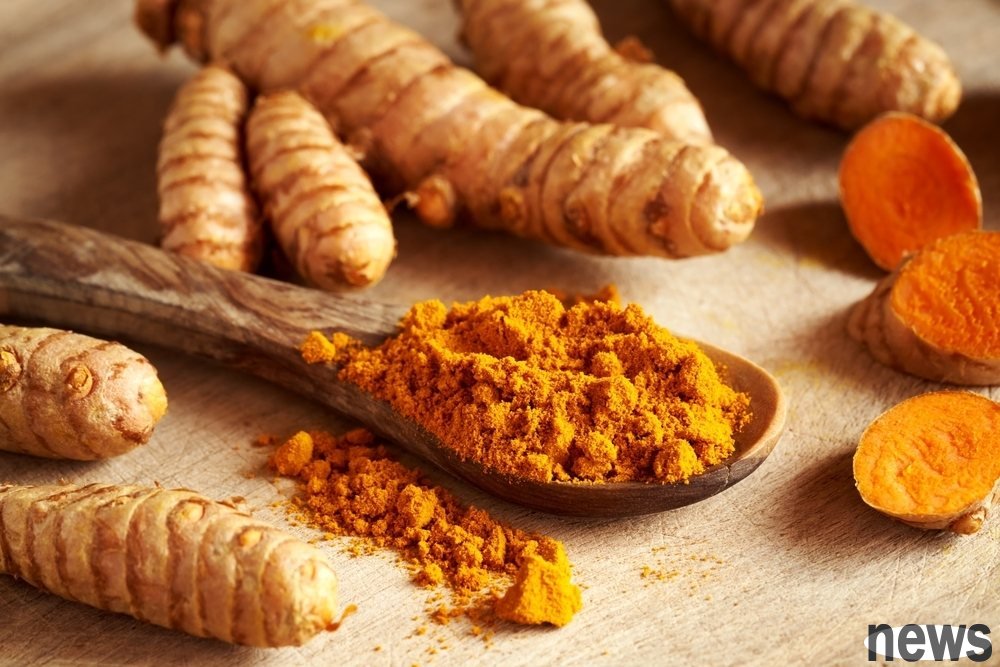
The ginger can help blood vessels to clear blood, promote blood circulation, promote liver secretion of leucorrhea, block estrogen receptors, and inhibit tumor growth caused by abnormal secretion, such as fibroids in the uterus.
Yellow ginger is a popular health food in recent years. Chinese medicine believes that ginger can help blood vessels to clear the blood vessels, promote blood circulation, promote liver secretion of juice, block estrogen receptors, and inhibit tumor growth caused by abnormal secretion, such as uterine fibroids. What are the effects of ginger yellow? When should I eat ginger yellow? How much is the best effect? What are the side effects of ginger yellow? Who can’t eat ginger yellow? What is the difference between yellow ginger and red ginger? What are the ginger yellow dishes? This article will give you a look at it once.
? 6 major effects are available at one time. The ginger is also called the incense of the calves. It uses a deep yellow powder ground from the roots as one of the ingredients of curry. It tastes bitter and spicy and has a bit of earthy flavor. Ezine contains "Ezine" and has anti-inflammatory effects, helping to reduce fat, prevent cancer, and prevent dementia. Zhang Peizhen Nutritionist said that ginger yellow has strong anti-inflammatory and antioxidant effects because it is rich in ginger yellow. There are 6 specific research effects:1. Inhibition of chronic inflammation: According to research by the National Center for Biotechnology (NCBI), ginger yellow can help inhibit inflammation and reduce the risk of chronic diseases, such as diabetes, cardiovascular, neurologic, gastrointestinal diseases and lung diseases.
2. Prevent cardiovascular disease: ginger ginger can help endothelial anti-inflammatory, prevent vascular sclerosis, benefit blood circulation, and reduce the effects of aphrodisiac LDL, and protect the cardiovascular system.
3. Prevent degeneration of cognitive function and dementia: ginger can penetrate the blood and brain barrier, improve the accumulation of elixir protein in the brain, reduce the course of dementia, and reduce brain injury. A clinical study in the American Journal of Elderly Psychiatric Diseases mentioned that taking ginger 90 mg twice a day for 18 months can help improve the memory and concentration of adults who have not yet been demented. It is proven that the antioxidant properties of ginger can help improve brain inflammation and delay decreased cognitive function.
4. Prevent gastrointestinal cancer and anti-cancer: ginger can block the nutritional source of cancer cells, and inhibit the enzymes and neovascularization of cancer cells to prevent and inhibit the expansion and maltification of cancer cells.
5. Liver health care and strengthening strength: The antioxidant effect of ginger can not only protect the liver, but also promote the decomposition of alcohol, so as to facilitate the secretion of more juice from the liver, help the liver to detoxify and detoxify.
6. Immune regulation and allergies: ginger can improve the effect of antioxidant and anti-inflammatory disease, and can also inhibit the release of platinum acid, thereby allergic symptoms.
When should I eat ginger yellow? How much is the best effect?Eat ginger in the morning or at night? Zhang Peizhen Nutritionist said that ginger ginger gluten is fat-soluble nutrient, and it is recommended to eat it after meals and eat it with meals to better absorb the effect. Nutritionists also mentioned that ginger has sleep aid and anti-inflammatory effects. If you want to relieve your mood, you can take it in the evening or before going to bed; if you want to take health during the day, you can add beans, coffee and milk to drink together.
In addition, Harvard doctor Sarah Gatfled mentioned in "Calmon's Treatment of the Church: Harvard doctor's all-round Caalmon's method of treatment, Western medicine, to prevent aging, obesity, depression, and effectively balance the body and mind" that ginger yellow proves that it can effectively fight the estrogen hyperplasia on cancer cells. It is recommended to sprinkle 1 teaspoon organic ginger yellow for lunch or dinner.
According to the recommendations of the World Health Organization (WHO), the daily intake of ginger yellow should be calculated based on "weight x 0~3mg per kilogram" and must not exceed 200mg in a day.
What are the side effects of ginger yellow? Who can’t eat ginger yellow?Although ginger yellow has anti-inflammatory, healing, anti-cancer, and anti-dementia effects, some studies have shown that ginger yellow can produce some side effects, such as nausea, vomiting, abdominal distension, skin allergy, etc. Special attention should be paid to the following special groups. Consult the doctor before taking ginger yellow:
1. Patients taking anticoagulants or those with abnormal coagulation function have anticoagulant effects, which will enhance the effect of anticoagulant and even cause internal bleeding. Therefore, you should avoid taking it as much as possible before, during and after surgery. Do not take it together with anticoagulant drugs, platelet inhibiting drugs, and aspirin to avoid risk of blood stasis and severe bleeding.
2. Patients with gastric achesia are irritating to the gastric mucosa. Excessive dose may cause side effects such as abdominal cavity, nausea, stomach aches, and stones.
3. Diamonds containing 2% oxalic acid salt for kidney stones and cyst diseases may cause kidney stones. Some studies have shown that ginger can easily increase urine concentration and can easily cause kidney stones. Patients with cyst disease should also avoid taking them to avoid cyst stones and cyst duct obstruction.
4. In the past month, the ginger can not only promote blood circulation and remove blood stasis, but also has anticoagulant effects. In order to avoid heavy bleeding, female friends should avoid taking it during menstruation.
5. According to research published in the 2008 Chinese Medicine and Clinical Journal, ginger yellow, which has the effect of promoting blood circulation and removing blood stasis and promoting bleed, has the effect of resisting the implantation of fertilized eggs. Therefore, it is not recommended for women who need pregnancy to eat it. Although ginger yellow has anti-inflammatory, healing, anti-cancer, and anti-dementia effects, some studies have shown that ginger yellow can produce some side effects, such as nausea, vomiting, abdominal distension, skin allergy, etc.
What is the difference between yellow ginger and red ginger?There are 3 common types of ginger yellow: spring ginger yellow, autumn ginger yellow, and purple ginger yellow.

ginger yellow has a higher ginger content, but the yield of ginger yellow is larger and more economical.
What are the ginger yellow dishes? In addition to cooking curry, ginger yellow and ginger yellow pumpkin soup can also be added to various dishes to eat.Yellow is beneficial to the immune system, and can also promote New Celestial and antioxidant, and is one of the choices for healthy diets for hot doors. In addition to cooking curry, you can also add various dishes to eat. The following is to teach you how to make ginger yellow dishes, and ginger yellow pumpkin soup is open.
1. Ingredients for ginger yellow: 2.5 cups of white rice, 1 teaspoon of ginger yellow powder, 2.5 cups of water.
Cooking steps: ■First mix the water and ginger powder evenly, then pour it into the washed white rice. ■Put into the pot and steam it. ■Will be steamed and cooked for 10 minutes to increase the taste.
2. Ingredients for ginger yellow pumpkin soup: 500 grams of pumpkin, 250 grams of milk, 300 grams of water, 1 teaspoon of ginger yellow powder, and seasonal vegetables.
Cooking steps: ■Wash the pumpkin first, cut it into slices, place it in an electric pot and steam it until soft, which can retain the pumpkin peel and increase nutrition. ■Mix the steamed pumpkin, ginger powder and milk evenly with a juicer. ■ Wash the vegetables and cut them into small diced ones, add them to the crock and stir-fry to bring out the fragrance. ■Pour the whipped pumpkin puree and add appropriate amount of water to adjust the concentration. ■After cooking, add appropriate amount of salt to taste.